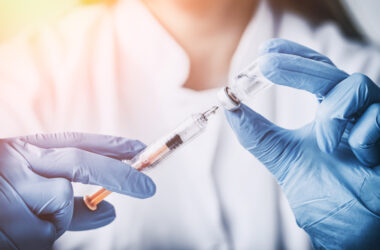By now, we all should know that sugary drinks, like soda pop, are bad for your teeth.
But over the last few years a similar drink has become incredibly popular: hard seltzer.
It’s fizzy like soda pop with its carbonation, and anything with alcohol has higher acid levels than other drinks – and acid is known to weaken your tooth enamel, that hard, outer shell of your teeth where cavities initially form.
So, it’s reasonable to ask: Are hard seltzers bad for your teeth?
Carbonation is okay
According to research, sparkling water is generally okay for your teeth. In one study, investigators tested whether sparkling water would attack tooth enamel more aggressively than regular water by experimenting on teeth that were removed as part of treatment and donated for research.
The researchers found that the two forms of water had about the same effects on tooth enamel, which is important and telling, because sparkling water is more acidic than ordinary water.
As far as your teeth are concerned, it’s all just water. But hard seltzers are a lot more than just carbonated water.
Alcohol and sugar
The biggest difference between sparkling water and hard seltzer is the addition of two critical ingredients: alcohol and sugar.
As mentioned above, alcohol is more acidic than other types of drinks, including sparkling water. That endangers your enamel. But alcohol is also bad for your oral health because it can cause dry mouth, which in turn creates a perfect environment for bacteria to grow.
Where bacteria grow, cavities form.
Oh and what really helps bacteria grow? Sugar. And hard seltzers have sugar – even so-called low sugar or sugar-free hard seltzers. How is that possible? Because alcohol is made with sugar. So, by default, hard seltzers are going to have sugars.
But then, as you probably know, a lot of hard seltzers are packed with sweeteners as well. So in short, hard seltzers are not good for your teeth, like soda pop.
So what should you do?
As dentists like this Bradford dentist recommend, the simple thing might be to swear off hard seltzers entirely. But that might not be realistic. Instead, what you can do to help your oral health is remember to drink a full glass of water after each hard seltzer you consume. Doing this will not only slow the effects of the alcohol, but it will also wash out your mouth of the acids and sugars.
Dr. Khajeh Nasiri says that any beverage can be enjoyed in moderation, but keeping your teeth top of mind is important.
“Once we start introducing added sugars and alcohols to our daily diet, you run the risk of weakening your tooth enamel and potentially causing issues for your oral and overall health,” said Dr. Khajeh Nasiri. “Ideally, you want to enjoy these beverages as a treat in tandem with a well-planned and executed dental regime that includes brushing twice a day as well as flossing.”
Alternatively, you might consider switching to gin and club soda. Gin has the lowest sugar content of alcohols and club soda will not cause acid build-up in your mouth.
The best beverage for your teeth
Of course, sparkling water is way better for your teeth than any sugary drink – soda pop, sweet tea, even coffee with sugar. But you shouldn’t just drink sparkling water.
The best beverage for your teeth is regular, fluoridated water. Water with fluoride added to it helps your teeth fight cavities and washes away leftover food in your mouth, which the bacteria that cause cavities feast upon.
And it also keeps your mouth from becoming dry, which if you didn’t know, can put you at a higher risk of cavities.
In an interview with bodyandsoul.com, Dr Mikaela Chinotti from the Australian Dental Association weighed in on the question of whether or not carbonated water was harmful for teeth health. Dr. Chinotti is an oral health advocate and dentist who promotes health literacy.
“Soda water is also known as carbonated water. It is created by dissolving carbon dioxide gas in water – this creates an acid known as carbonic acid. The carbonic acid causes the pH of soda water to be lower than plain water but it is not as low as fizzy soft drinks,” said Dr. Chinotti. “Because soda water does not include sugar as an ingredient and the pH value of the drink is higher than that of fizzy soft drinks, these factors mean it is a more favorable option when looking for a drink with some fizz, however, it should still not be drunk every day.”
Things to keep in mind
You should also be aware of the specific kind of sparkling water you drink, as not all sparkling waters are the same. Citrus-flavored sparkling waters typically have the highest acid levels.
Sparkling waters with added sugar can no longer be considered just sparkling water for marketing and branding purposes – but they do exist and, again, sugary drinks, in whatever form, are not good for your teeth.
So be aware of what’s actually in your sparkling water before you drink it. And when you drink it, drink it with a meal or in just one sitting. Don’t sip sparkling water all day long at your desk
So remember: As far as your teeth are concerned, the best choice for a beverage is always plain water.














